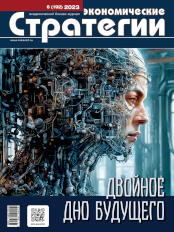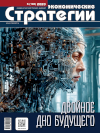Technology of Data Information Space and Improvement of Public Administration
DOI: 10.33917/es-6.192.2023.62-67
The article examines possibilities of the ontological model and technology of the data information space and the ISIAD software product. This experience can be successfully used in the “Data Economy” national project.
References:
1. Ageev A.I., Kuz’min O.V., Perminova E.A. Informatsionnaya bezopasnost’ avtomatizirovannykh sistemy upravleniya proizvodstvennym i tekhnologicheskimi protsessami ob”ektov kriticheskoy informatsionnoy infrastruktu [Information Security of Automated Control Systems for Production and Technological Processes of Critical Information Infrastructure Facilities]. Ucheb. posobie. Moscow, MNIPU, 2021.
2. Ageev A.I., Bondarik V.N., Ivanova O.D., Kudryavtsev A.V., Loshchinin A.A. Tekhnokraticheskaya kontseptsiya proektov tsifrovoy ekonomiki: sinergiya integratsii sistem i dannykh [The Technocratic Concept of Digital Economy Projects: the Synergy of Integration of Systems and Data]. Mikroekonomika, 2018,
no 5, pp. 14–21.
3. Ageev A.I., Grabchak E.P., Loginov E.L., Chinaliev V.U. Tsifrovaya platforma upravleniya nauchno-tekhnologicheskim razvitiem v prostranstve ekonomicheskogo sotrudnichestva [Digital Platform for Managing Scientific and Technological Development within Economic Cooperation Framework].
Ekonomicheskie strategii, 2023, no 1, pp. 56–69, DOI: https://doi.org/10.33917/es-1.187.2023.56-69
4. Loshchinin A.A., Bondarik V.N., Kudryavtsev A.V. Nekotorye informatsionno-tekhnologicheskie aspekty tsifrovoy ekonomiki [Some Information and Technological Aspects of the Digital Economy]. Mikroekonomika, 2017, no 4, pp. 67–71.
5. Ageev A.I., Radina V.Ya. Metodika tsifrovoy ekonomiki v chasti upravleniya i kontrol’noy deyatel’nosti v real’nom sektore ekonomiki [Methods of Digital Economy in Terms of Management and Control Activities in the Real Economy]. Ekonomicheskie strategii, 2019, no 3, pp. 44–56, DOI: 10.33917/es-3.161.2019.44-56
6. Loshchinin A.A. Informatizatsiya v administrativnykh sistemakh [Informatization in Administrative Systems]. Moscow, 1999.
7. Loshchinin A.A. Bol’shaya informatizatsiya malykh territoriy [Big Informatization of small Territories]. Informatsionnye tekhnologii territorial’nogoupravleniya, 2002, no 36.
8. Loshchinin A.A. Tekhnologii informatizatsii administrativnykh organov territoriy [Technologies for Informatization of Administrative bodies of Territories].
Informatika i vychislitel’naya tekhnika, 1997, no 4, pp. 31–35.
9. Loshchinin A.A. Informatsionnye modeli territorial’nykh administrativnykh system [Information Models of Territorial Administrative Systems]. Informatsionnye tekhnologii v strukturakh gosudarstvennoy sluzhby, Moscow, RAGS, 1999.
10. Loshchinin A.A. Osnovy prikladnoy biznes-informatiki [Fundamentals of applied Business Informatics]. Saransk, 2017, 422 p.
11. Loshchinin A.A. CASE — sreda dlya informatizatsii administrativnykh sistem na osnove IPD-tekhnologii [CASE is an Environment for Informatization of Administrative Systems based on IPD technology]. Informatsionnye tekhnologii v strukturakh gosudarstvennoy sluzhby, Moscow, RAG S, 2001.











